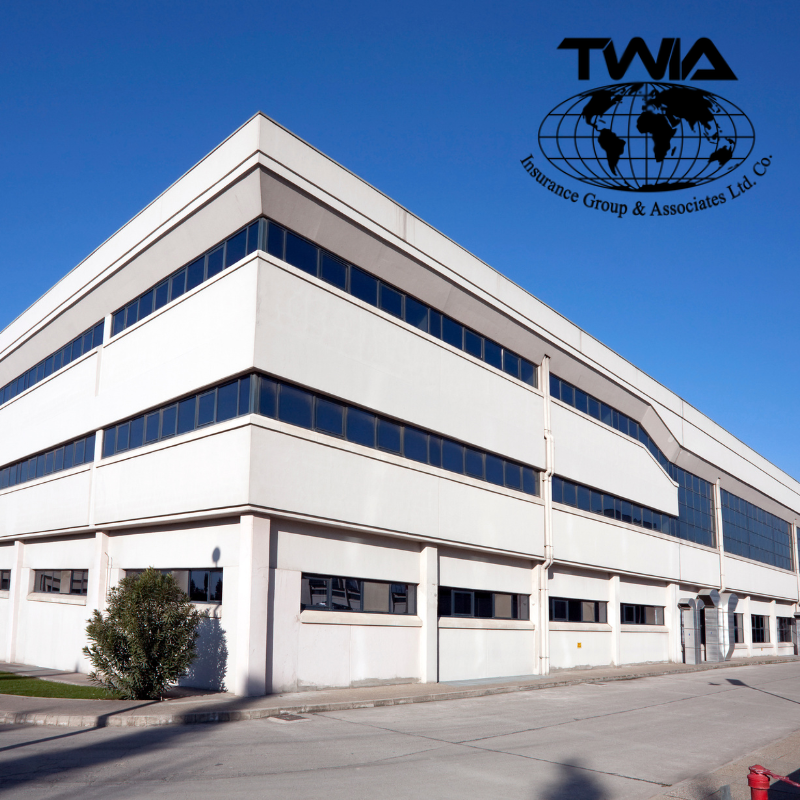Navigating the Business Insurance Eligibility Landscape

Are you a property owner or a business owner looking for the right insurance coverage? Navigating the complex landscape of business insurance eligibility can be a daunting task. In this informative blog post, we will explore the current state of the insurance market for both investors and property owners, giving you valuable insights into the criteria you need to meet in order to obtain the insurance coverage that best suits your needs. Whether you are a small business owner or a seasoned investor, understanding the business insurance eligibility criteria is crucial for protecting your valuable assets.

Understanding Business Insurance Eligibility Criteria
When it comes to obtaining business insurance, understanding the eligibility criteria is crucial. Insurance providers have certain requirements that businesses must meet in order to qualify for coverage. By familiarizing yourself with these criteria, you can ensure that your business is eligible for the insurance policies it needs to mitigate risks and protect its assets. This article will explore the factors that commonly contribute to business insurance eligibility, the types of insurance policies available, and the steps involved in the application process.
Why Eligibility Criteria Matter
Eligibility criteria are essential because they help insurance providers assess the level of risk associated with insuring a particular business. Insurance companies need to evaluate various aspects of a business before determining if they are willing to provide coverage. By considering factors such as industry risks, financial stability, claims history, property condition, and employee safety, insurance providers can calculate the appropriate premiums and coverage limits.

Common Eligibility Criteria Factors
Insurance providers consider several factors when determining a business's eligibility for coverage. Some common criteria include:
1. Assessing Business OperationsInsurance companies evaluate a business's operations to understand the potential risks they may face. This assessment involves analyzing the processes, equipment, and protocols in place to mitigate risks and ensure safety. By understanding the nature of a business's operations, insurance providers can determine the appropriate coverage and premiums.
2. Evaluating Industry RisksDifferent industries have varying levels of risk associated with them. Insurance providers take into account the specific risks associated with a particular industry when assessing eligibility. For example, a construction company may face higher risks than a retail store. By evaluating industry risks, insurance companies can customize policies to address the specific needs of each business.
3. Assessing Business StabilityInsurance providers also consider the stability and longevity of a business. Factors such as the number of years in operation, stability of revenue, and presence of contingency plans are assessed to determine the business's ability to handle potential risks. A stable and established business is more likely to be considered eligible for insurance coverage.
4. Determining Coverage NeedsInsurance providers consider the specific coverage needs of a business. Different businesses require different types and levels of insurance. For example, a manufacturing company may need coverage for product liability, while a professional services firm may require errors and omissions insurance. By determining the appropriate coverage needs, insurance providers can tailor policies to meet each business's requirements.
Types of Business Insurance Policies
There are several types of business insurance policies available to meet the diverse needs of different industries. Some common types include:
1. General Liability InsuranceGeneral liability insurance provides coverage for third-party bodily injury, property damage, and advertising injury claims. It protects businesses from liabilities arising out of their products, services, or business operations.
2. Property InsuranceProperty insurance covers the damage or loss of physical assets, such as buildings, equipment, inventory, and furniture. It protects businesses against losses caused by fire, theft, vandalism, or natural disasters.
3. Professional Liability InsuranceProfessional liability insurance, also known as errors and omissions insurance, provides coverage for businesses that provide professional services. It protects against claims of negligence, errors, or omissions that result in financial harm to clients.
4. Workers' Compensation InsuranceWorkers' compensation insurance covers medical expenses and lost wages for employees who are injured or become ill as a result of their work. It provides financial protection for both the employee and the employer.
5. Commercial Auto InsuranceCommercial auto insurance provides coverage for vehicles used for business purposes. It protects businesses from liability in case of accidents or damage caused by company-owned vehicles.
These are just a few examples of the many types of business insurance policies available. It's essential to assess your specific needs and consult with insurance professionals to determine the most suitable coverage for your business.
Assessing Business Operations
One crucial aspect of determining business insurance eligibility is evaluating the operations of a business. Insurance providers need to understand how a business operates, the potential risks it faces, and the measures in place to mitigate those risks.
Implementing Safety ProtocolsInsurance providers assess whether a business has implemented appropriate safety protocols to minimize the likelihood and impact of accidents and injuries. This includes having clear safety guidelines, conducting regular safety trainings, and maintaining a safe working environment.
Training Programs and CertificationsInsurance providers also consider the level of training and certifications held by a business's employees. Businesses that invest in employee training and certifications demonstrate a commitment to safety and risk management, making them more attractive to insurance providers.
Maintaining Risk Management PlansHaving a comprehensive risk management plan is crucial for businesses seeking insurance coverage. Insurance providers evaluate whether a business has identified potential risks, implemented measures to mitigate those risks, and established contingency plans. A well-documented risk management plan showcases a business's commitment to minimizing risks and may improve eligibility for coverage.
Business Size and Annual Revenue
The size of a business and its annual revenue play significant roles in determining its eligibility for business insurance. Insurance providers categorize businesses into small, medium, and large based on various factors, including revenue, number of employees, and total assets.
Defining Small, Medium, and Large BusinessesThe classification of a business as small, medium, or large can vary depending on the industry and insurance provider. It is essential to understand the criteria used by your insurance provider to determine the appropriate category for your business.
Impact of Annual RevenueAnnual revenue is a significant factor in determining a business's eligibility for certain insurance policies. Higher-revenue businesses may require higher coverage limits to adequately protect their assets. Conversely, smaller businesses with lower revenue may have different insurance needs and be eligible for more cost-effective policies.
Suitability for Different PoliciesThe size and revenue of a business can also influence the types of insurance policies available to them. Certain policies, such as directors and officers liability insurance, may be more relevant to larger businesses with a higher level of risk exposure. Understanding your business's size and revenue can help you determine which policies are most suitable.
Legal Compliance and Licensing
Complying with legal requirements and maintaining necessary licenses is crucial when it comes to insurance eligibility. Insurance providers consider whether a business is in compliance with relevant laws and regulations governing its industry.
Understanding Legal RequirementsEvery industry is subject to specific legal requirements and regulations. Insurance providers evaluate whether a business has met these requirements as non-compliance can increase the likelihood of claims and financial losses.
Maintaining Necessary LicensesCertain businesses require specific licenses to operate legally. Insurance providers assess whether a business has obtained and maintained these licenses, as it is an indication of compliance with industry regulations.
Effect on Insurance EligibilityNon-compliance with legal requirements and licensing can impact a business's eligibility for insurance coverage. Insurance providers may require proof of compliance and may withhold coverage until all necessary requirements have been fulfilled.
Insurance Application Process
Once you have assessed your business's eligibility for insurance coverage, the next step is to complete the insurance application process. This involves gathering the required information, completing the application form accurately, and working with insurance agents or brokers.
Gathering Required InformationInsurance providers require specific information to assess a business's eligibility and determine appropriate coverage. This may include details about the business's operations, financial statements, claims history, property condition, and employee safety protocols. It is crucial to gather all the necessary information before starting the application process.
Completing the ApplicationWhen completing the insurance application, it is essential to provide accurate and detailed information. Inaccurate or incomplete information can lead to complications during the underwriting process and may result in denial of coverage or voiding of the policy. Take the time to review the application thoroughly and consult with professionals if needed.
Working with Insurance Agents/BrokersInsurance agents or brokers can provide valuable assistance throughout the application process. They have the knowledge and expertise to guide you through the requirements, help you understand the policies available, and ensure that your application is accurate and complete. Working with an experienced professional can improve your chances of securing the right coverage for your business.

Seeking Professional Assistance
Navigating the complexities of business insurance eligibility can be overwhelming. Seeking professional assistance can help you make informed decisions and ensure that you have the right coverage for your business's needs.
Benefits of Insurance Advisors/ConsultantsInsurance advisors or consultants specialize in analyzing businesses' insurance needs and finding the most suitable coverage options. They can provide personalized guidance, help you understand complex insurance terminology, and negotiate favorable terms with insurance providers. Working with an insurance advisor can save you time and effort while ensuring that you have the appropriate coverage in place.
Working with Risk Assessment FirmsRisk assessment firms offer comprehensive evaluations of a business's risks and vulnerabilities. They can identify hidden risks, assess the adequacy of existing safety measures, and recommend strategies to mitigate risks. Utilizing the services of a risk assessment firm can help strengthen your insurance application and improve your overall risk management practices.
Expert Guidance for Insurance EligibilityWhen it comes to insurance eligibility, expert guidance is invaluable. Insurance professionals have a deep understanding of insurance policies, eligibility criteria, and the application process. They can assist you in navigating the complexities of the insurance landscape, ensuring that your business has the necessary coverage to protect against potential risks and losses.
In conclusion, understanding business insurance eligibility criteria is crucial for obtaining the appropriate coverage for your business. By evaluating factors such as industry risks, business stability, claims history, property condition, employee safety, size, revenue, legal compliance, and licensing, you can assess your business's eligibility and make informed decisions. Seeking professional assistance from insurance advisors, risk assessment firms, and industry experts can further enhance your eligibility and ensure that you secure the right insurance coverage for your business's unique needs.
https://twiainsurancestore.com/navigating-the-business-insurance-eligibility-landscape/

Comments
Post a Comment